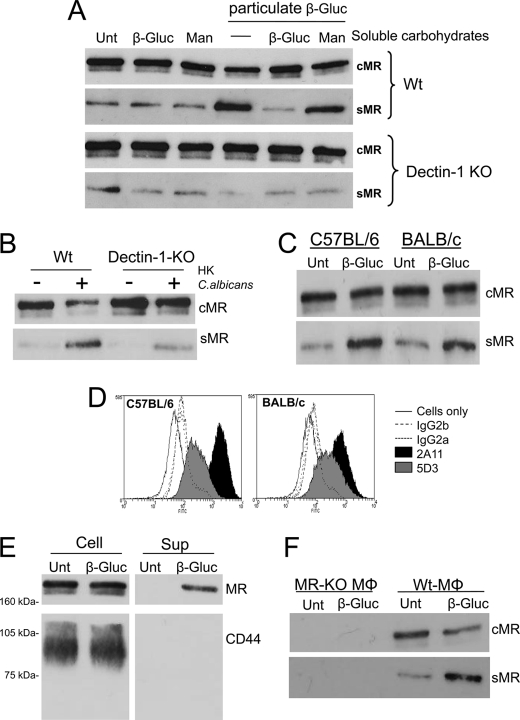FIGURE 2.
β-Glucan treatment induces sMR production through dectin-1 engagement independently of the mouse strain and does not promote CD44 shedding. Sex- and age-matched WT and dectin-1-KO thio-Mφ were treated with β-glucan particles (50 particles/cell) in the presence and absence of 1 mg/ml glucan phosphate (β-Gluc) or 1 mg/ml mannan (Man) (A). Sex- and age-matched WT and dectin-1-KO thio-Mφ were treated with HK C. albicans (50 particles/cell) (B). Analysis of cell lysates and culture supernatants by Western blotting demonstrated dectin-1-mediated enhanced sMR production in response to particulate β-glucan that could be inhibited by soluble β-glucan but not by mannan (A). Similarly, sMR production in response to HK C. albicans was reduced in dectin-1-deficient cells (B). Both C57BL/6 and BALB/c Mφ were capable of shedding MR in response to particulate β-glucan (C), despite the different levels of surface dectin-1 expression in each strain (D). CD44 could be detected in cell lysates but not in supernatants from β-glucan-treated WT Mφ, whereas cMR and sMR were detected in cell lysates and supernatants, respectively (E). No signal could be detected in supernatants from MR-KO cells treated with β-glucan (F). Data are representative of two or three independent experiments (A–D and F). Unt, untreated.

